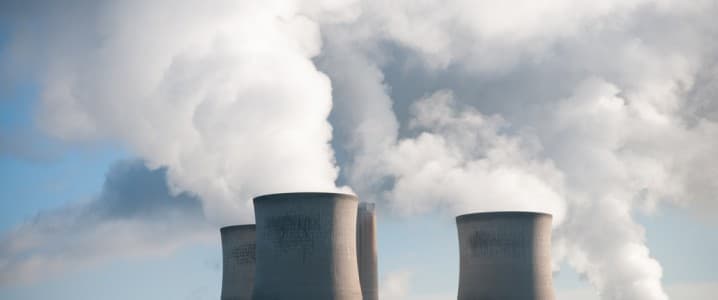Nuclear continues to be on an upswing globally.
Most recently, we learned that Japan is now considering extending its 60 year limit on the operation of plants and is even considering submitting legislation on the issue as soon as next year, according to U.S. News and Nikkei.
The rules could allow "repeated extensions", should they be approved by the country's Nuclear Regulation Authority.
Currently, regulations put in place in reaction to the Fukushima disaster say that reactors "can be operated for 40 years, followed by a 20-year extension if approved by regulators". As of now, four of the country's 33 reactors have been approved for up to 60 years.
A nuclear plant at Sendai, run by Kyushu Electric Power Co Inc., applied for an extension this week. Kansai Electric Power Co Inc and Japan Atomic Power Company have also lobbied for similar extensions.
Japan has not been immune to the energy crisis that has made its way across the globe this year, facing headwinds in both the availability of supplies and rising prices.
Recall, just days ago we reported that Greta Thunberg, wasn't against shutting down nuclear plants in favor of coal. Thunberg said that it is a "bad idea" to turn off nuclear power stations if it means switching to coal, according to Politico on Tuesday.
"It depends. If they are already running, I think it would be a mistake to shut them down and turn to coal," she said about nuclear plants.
Nowhere is the nuclear agenda more important than in Germany, a country that had planned to close its 3 remaining nuclear plants at the end of the year before it was launched into a massive energy crisis with skyrocketing prices as a result of the Russia/Ukraine war. They have now decided to extend the life of 2 of the plants.
The additional collateral damage of planning to shut down the nuclear plants has results in Germany also reviving several dormant coal plants, the report says. Nuclear has been such a hot-button issue in the country that "the public discourse over extending the reactors, even for a few months, has been far more controversial than rebooting highly polluting coal plants," Politico says.
Germany's Finance Minister Christian Lindner said of Thunberg's comments: "...in this energy war, everything that creates electricity capacity has to be connected to the grid. The reasons speak for themselves — economically and physically."
ADVERTISEMENT
By Zerohedge.com
More Top Reads from Oilprice.com:
- The Most Consumed Energy Sources In Every Country Of Europe
- America Desperately Needs To Invest More In Battery Recycling
- The Problem With Carbon Offsetting


















Currently, regulations put in place in reaction to the Fukushima disaster say that reactors can be operated for 40 years, followed by a 20-year extension if approved by regulators. As of now, four of the country's 33 reactors have been approved for up to 60 years.
The cases of both Japan and Germany prove that energy security and economics always take precedence over the dictates of climate change and energy transition.
Dr Mamdouh G Salameh
International Oil Economist
Global Energy Expert